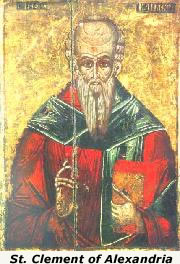- Arabic Corner
- Audio
- Bible Study
- Coptic Reader
- Children's Corner
- Deacons
- Evangelism & Apologetics
- Evangelism Pamphlets
- Interesting Facts
- Literature
- Pigori Productions
- Priests Corner
- Questions & Answers
- Reading Recommended
- Saintly Studies
- Servants Guide
- Sunday School Curriculum
- Sunday School Curriculum-Special Needs
- Youth Corner
The Didache
![]() Print
|
Print
|
![]() Send to a friend
|
Send to a friend
|
![]() Bookmark
|
Tweet
|
Bookmark
|
Tweet
|
![]() Back
Back

Historical Evidence of the Lord's Instructions Taught to the Nations through the Twelve Apostles:
The Didache
The Didache may be the oldest of known documents of Christian antiquity. It has been said to be undoubtedly the most ancient church "manual" in mankind's possession. In the early church, historically recorded, particularly in the nation of Egypt the Didache was held worthy of great respect and is documented as often quoted from by St. Clement of Alexandria as well as St. Athanasius the Apostolic.
The Didache entails educational teaching and church order specifically Christian in characterization. This means there is no evidence of Jewish indoctrination, nor does it address Judaism as the first problem encountered within the early Christian Church's conception. The Didache's language is simplistic which places it written at a time period very close to the Apostolic Era. This is postulated to be the initial period of change from the writings of the New Testament to those writings of the Church. Many theologians date the book written in its entirety sometime about the last third of the first century making its accuracy of teaching valid.
The Didache further refers to the stability of the Church, which had been realized as the Apostolic Era drew to a close, as well as it makes reference to many quotes from the Holy Gospel of St. Matthew.
It has no known author, nor does the Didache directly point to apostolic authorship. Rather the inner writer writes about the doctrine of the Lord Jesus Christ as taught to the nations by the apostles. Therefore, it can be correctly surmised that the Lord's teachings to the apostles were shared with the Gentiles through evangelistic efforts.
Its place of origin is stated by many scholars to be Alexandria, Egypt. What evidence concurs with this? Alexandria, Egypt was said to use the apostolic church order (the Egyptian church order) which is found under the Christian church ethics section of the Didache, statements within the Didache were quoted by Egyptian authors such as St. Clement of Alexandria with history recording this, and further evidence supporting this is the Egyptian Bishop Serapion in the 4th century used it in His Grace's Eucharistic Prayers.
What purpose does this document give to the Christians today? It gives evidence pointing to the apostolic beginnings of our Church first and foremost. It did not reveal evangelism's teaching of the day but rather revealed the treasures of the Christian life at the end of the first century and in the second century with the rituals of that time, instructions of organization, and regulations for liturgical functions. It gives rise to the human imagination of how church law in the East and in the West originated.
Specifics are astounding such as baptism was undeniably practiced by immersion (it spoke to running water in the rivers and immersion). Baptism by pouring water from a vessel or from the hand was allowed only in cases of scarcity of water or to sick persons who could not leave their beds. Fasting was necessary on Wednesdays and Fridays. Receiving the Holy Eucharist regularly was essential.
The Didache is not considered a book of the New Testament. Pope Athanasius emphasized that it was not canonized. Its purpose to us may lie in the fact that the Lord's teachings to the apostles were simply recorded by an inner unknown writer as a result of the apostles' evangelistic efforts following the Pentecost. It gives us perhaps a look into how the Lord Jesus Christ shaped His disciples for church greatness.
The discovery of the Didache was only a whisper of the teachings and the extraordinary talents which lay within the apostles. The disciples were twelve ordinary men similar in human likeness to many of us today. The disciples were twelve men who could not fathom the power of God, who struggled with their own sins, had difficulty with absolute commitment, yet, who found faith.
With this ever challenged faith a handful of common fishermen, a despised tax collector, and a political zealot- together comprising twelve men- become a force that would forever impact the world. This is not fiction or myth. They were not earthly prophets or saints. They were not priests or religious scholars of the day. They were not even educators or orators.
They were unremarkably human, but with faith and obedience to the Lord Jesus Christ they conquered the world in His Name and that's an undeniable, undisputable historically recorded fact!
May we all give homage to those who did what He wanted them to do and ask to be worthy to pray:
"Just as You were with Your disciples, O Savior, and gave them peace, graciously come also and be with us, and grant us Your peace, and save us, and deliver our souls" (2nd Watch, Midnight Prayers).
May we humbly ask that His blessings be upon us all,
H.G. Bishop Youssef
Bishop, Coptic Orthodox Diocese of the Southern United States
![]() Print
|
Print
|
![]() Send to a friend
|
Send to a friend
|
![]() Bookmark
|
Tweet
|
Bookmark
|
Tweet
|
![]() Back
Back